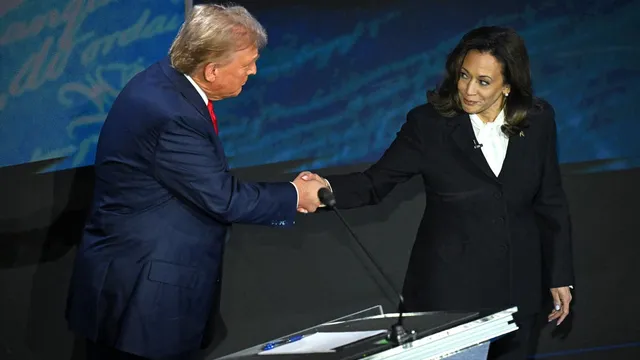
Harris certifies Trump's election win despite calling him a danger to democracy
2025-01-06 13:37- Congress convened on January 6, 2025, to certify the electoral votes from the November 2024 election.
- In a peaceful atmosphere, Vice President Kamala Harris presided over the session, marking a significant political comeback for Donald Trump.
- This event was a pivotal moment for U.S. democracy and highlighted the importance of congressional duty.
Express your sentiment!
Insights
On January 6, 2025, Congress met at the U.S. Capitol in a joint session to certify the Electoral College votes for the election held on November 5, 2024. This event marked Donald Trump's election as the 47th President of the United States, succeeding President Joe Biden. Unlike the chaotic certification process in 2021, which was marred by a violent mob assault, this year's event was peaceful and orderly. Vice President Kamala Harris, who lost the election, fulfilled her constitutional duty by overseeing the process and officially declaring Trump the winner. The results showed Trump winning 312 electoral votes against Harris's 226, with Trump also achieving a historic victory in the popular vote, amassing 77.3 million votes compared to Harris's 75 million votes. The ceremony was attended by both Senate and House members, who displayed a collegial atmosphere, contrasting sharply with the divisiveness of the prior election cycle. The increase in security measures reflected the heightened awareness of the importance of this date, as it marks the fourth anniversary of the 2021 Capitol attack. Post-Capitol riot reforms, including the Electoral Count Reform Act, aimed to prevent future disruptions and ensure the integrity of the electoral process. Only two years prior, several Democratic lawmakers had raised objections during the certification of Joe Biden’s victory. However, this time around, Democrats chose not to oppose Trump's certification, emphasizing their commitment to their constitutional duties. Their choice not to object demonstrated a political shift aimed at restoring a sense of normalcy and stability to the electoral process, therefore increasing bipartisan respect for the rule of law. The day's proceedings highlighted a critical moment in U.S. political history, representing both a significant comeback for Trump and a hopeful illustration of Congress's ability to fulfill its responsibilities without strife amid democracy's challenges.
Contexts
The impact of January 6 on U.S. elections continues to resonate deeply across the nation. The storming of the Capitol not only showcased the vulnerability of American democracy but also instigated an atmosphere of fear among election officials. Many have cited harassment and threats to their safety and that of their families, prompting a significant exodus from their positions. As we move towards future elections, this undercurrent of anxiety threatens the very foundation of trust upon which our elections rely. Healing the wound of January 6 is no simple task; it demands accountability for the damage inflicted on America's democratic processes. It's evident that the resilience of U.S. democracy is being tested by those who would exploit misinformation for personal gain. The repercussions of these actions can be seen in the divided opinions among citizens, with stark contrasts between Democrats and Republicans regarding the responsibility of former President Trump and the necessary actions to heal the rift. Surveys indicate a growing sentiment among voters emphasizing the importance of addressing the Capitol riots. While Republicans have expressed concern about accountability for the rioters, the urgency for a fair investigation into the events remains contested. Many Americans seem skeptical about whether the ongoing committee investigations will yield just results, reflecting a broader discontent regarding the political landscape. As we strive for reform through measures that safeguard voting rights and uphold election integrity, the discourse surrounding these matters intensifies. Empowering state officials to alter election outcomes only serves to deepen divisions. With each passing moment, the pressing need for informed and safe electoral practices becomes clearer, reminding us all that the future of American democracy hinges on our collective responsibility to protect it.